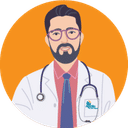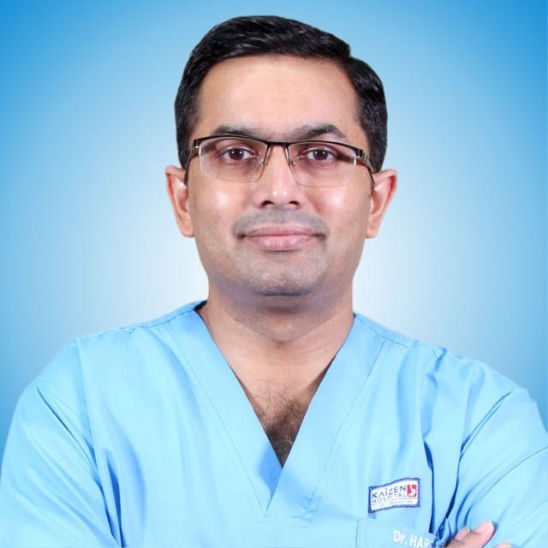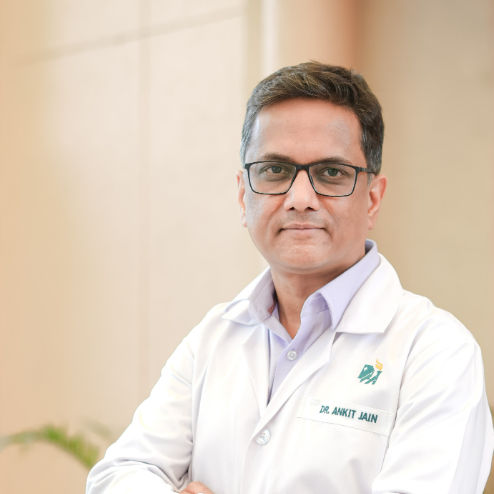Oesophageal Cancer Risk Assessment Quiz
Take this simple oesophageal cancer risk assessment quiz to understand your risk factors. Learn about symptoms, prevention tips, and when to seek medical advice for early detection.


Introduction
Oesophageal cancer is a serious condition that affects the food pipe (oesophagus), which connects your throat to your stomach. Early detection can significantly improve treatment outcomes, making awareness and risk assessment crucial. This article will help you understand oesophageal cancer, its risk factors, symptoms, and ways to reduce your risk.
What is Esophageal Cancer?
Oesophageal cancer occurs when abnormal cells grow uncontrollably in the oesophagus. There are two main types:
1. Adenocarcinoma: Usually develops in the lower part of the oesophagus, often linked to acid reflux and obesity.
2. Squamous cell carcinoma: Typically affects the upper and middle oesophagus and is often associated with smoking and alcohol consumption.
Who is at Risk?
Certain factors increase the likelihood of developing oesophageal cancer. Take this simple quiz to assess your risk:
Oesophageal Cancer Risk Assessment Quiz
Answer Yes or No to the following:
1. Do you smoke or use tobacco products?
Smoking is a major risk factor for oesophagal cancer.
2. Do you drink alcohol frequently?
Heavy alcohol use increases risk, especially when combined with smoking.
3. Do you experience frequent heartburn or acid reflux?
Chronic acid reflux can lead to Barrett’s oesophagus, a precancerous condition.
4. Are you overweight or obese?
Excess weight increases pressure on the stomach, leading to acid reflux.
5. Do you eat a diet low in fruits and vegetables?
A lack of nutrients may contribute to a higher risk.
6. Do you frequently consume very hot drinks or foods?
Repeated exposure to extremely hot liquids may damage the oesophagus.
7. Have you been diagnosed with Barrett’s esophagus?
This condition raises the risk of oesophagal cancer.
8. Do you have a family history of oesophagal cancer?
Genetics may play a role in some cases.
If you answered "Yes" to multiple questions, you may be at higher risk.
Symptoms to Watch For
Early-stage esophageal cancer may not show obvious symptoms, but as it progresses, you may experience:
Difficulty swallowing (dysphagia)
Unexplained weight loss
Chest pain or burning sensation
Chronic cough or hoarseness
Indigestion or heartburn that doesn’t go away
If you notice these symptoms persistently, consult a doctor.
Get Your Symptoms Checked By An Oncologist
How Can You Lower Your Risk?
While some risk factors (like genetics) can’t be changed, you can take steps to reduce your risk:
1. Quit Smoking and Limit Alcohol
Smoking is strongly linked to squamous cell carcinoma.
Heavy alcohol use increases risk, moderation is key.
2. Manage Acid Reflux (GERD)
Eat smaller meals.
Avoid lying down immediately after eating.
Reduce spicy, fatty, or acidic foods.
If you have chronic heartburn, see a doctor to prevent complications like Barrett’s oesophagus.
3. Maintain a Healthy Weight
Obesity increases acid reflux risk, which can damage the oesophagus over time.
4. Eat a Balanced Diet
Include plenty of fruits, vegetables, and whole grains.
Avoid processed meats and extremely hot beverages.
5. Get Regular Check-ups if at High Risk
If you have Barrett’s oesophagus or a family history, regular screenings can help detect early changes.
When to See a Doctor?
If you have persistent symptoms like difficulty swallowing, unexplained weight loss, or severe heartburn, seek medical advice. Early diagnosis improves treatment success.
Book a Consultation with Apollo 24|7
If you’re concerned about your risk or experiencing symptoms, Apollo 24|7 offers expert consultations and diagnostic tests. You can easily schedule an appointment online for personalised care.
Conclusion
Oesophagal cancer is serious but preventable with awareness and lifestyle changes. By understanding your risk factors and taking proactive steps, you can protect your health. If you suspect any symptoms, don’t hesitate to consult a doctor—early action makes a big difference.
Get Your Symptoms Checked By An Oncologist
Get Your Symptoms Checked By An Oncologist

Dr. Amit Choraria
Surgical Oncologist
18 Years • MBBS, MS (Surgery) Fellow, Surgical Oncology, Tata Medical Center (FSO) Fellow, European Board of Surgery (Surgical Oncology) (FEBS) Fellow, Minimal Access Surgery (FMAS) Fellow, Indian Association of Gastrointestinal Endosurgeons (FIAGES) UICC Fellow, Royal Marsden NHS, London, UK Visiting Scholar, Plastic Reconstructive Surgery, CGMH, Taiwan Fellow, Robotic Surgical Oncology, Vattikuti Foundation, USA
Kolkata
Apollo Multispeciality Hospitals , Kolkata, Kolkata

Dr. Rupam Manna
Radiation Specialist Oncologist
4 Years • MBBS MD(RADIO THERAPY)
Barasat
Diab-Eat-Ease, Barasat

Dr. Prathyush V
Medical Oncologist
8 Years • MBBS Oncology MD Radiation DNB
Bengaluru
Apollo One Electronic City, Bengaluru

Dr. Harsh J Shah
Surgical Oncologist
15 Years • MS, MCh (GI), DrNB (GI)
Ahmedabad
Apollo Hospitals Gandhinagar, Ahmedabad

Dr Ankit Jain
Medical Oncologist
20 Years • MBBS, (MAMC Delhi), MRCP Oncology (London), MRCP Medicine (London), MSC Oncology(UK) CCT(UK)
Delhi
Apollo Hospitals Indraprastha, Delhi
(25+ Patients)